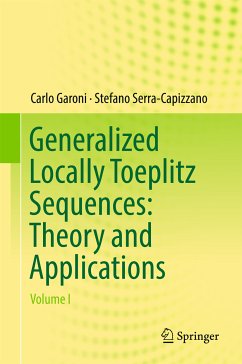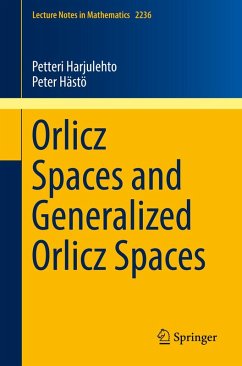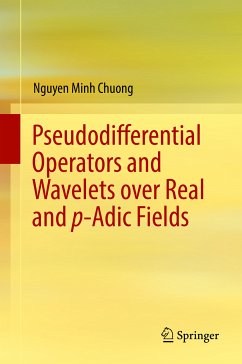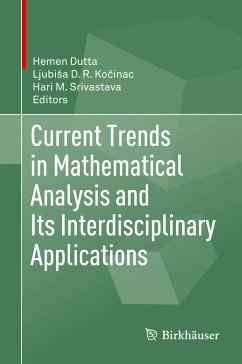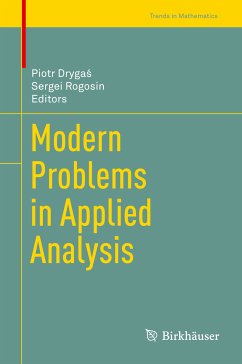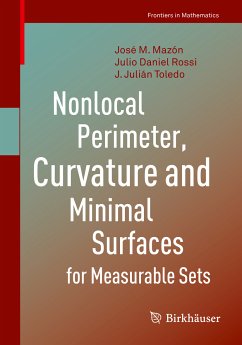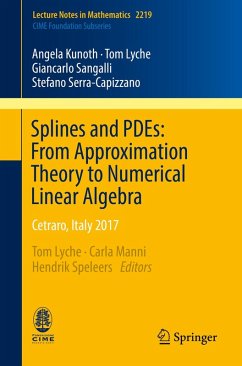
Generalized Locally Toeplitz Sequences: Theory and Applications (eBook, PDF)
Volume II
Versandkostenfrei!
Sofort per Download lieferbar
40,95 €
inkl. MwSt.
Weitere Ausgaben:

PAYBACK Punkte
20 °P sammeln!
Based on the authors' research experience, this two-volume reference textbook focuses on the theory of generalized locally Toeplitz sequences and its applications. The first volume discusses the univariate version of the theory and the related applications in the unidimensional setting, while this second volume, which addresses the multivariate case, is mainly devoted to concrete PDE applications. This book systematically develops the multivariate version of the theory of generalized locally Toeplitz (GLT) sequences and presents some of its main applications to the numerical discretization of ...
Based on the authors' research experience, this two-volume reference textbook focuses on the theory of generalized locally Toeplitz sequences and its applications. The first volume discusses the univariate version of the theory and the related applications in the unidimensional setting, while this second volume, which addresses the multivariate case, is mainly devoted to concrete PDE applications.
This book systematically develops the multivariate version of the theory of generalized locally Toeplitz (GLT) sequences and presents some of its main applications to the numerical discretization of partial differential equations (PDEs). Written for applied mathematicians, engineers, physicists, and scientists who (perhaps unknowingly) encounter GLT sequences in their research, it is also of interest to those working in the fields of Fourier and functional analysis, spectral analysis of PDE discretization matrices, matrix analysis, numerical analysis, linear and multilinear algebra. Further, it can be used as a textbook for graduate or advanced undergraduate courses in numerical analysis.
This book systematically develops the multivariate version of the theory of generalized locally Toeplitz (GLT) sequences and presents some of its main applications to the numerical discretization of partial differential equations (PDEs). Written for applied mathematicians, engineers, physicists, and scientists who (perhaps unknowingly) encounter GLT sequences in their research, it is also of interest to those working in the fields of Fourier and functional analysis, spectral analysis of PDE discretization matrices, matrix analysis, numerical analysis, linear and multilinear algebra. Further, it can be used as a textbook for graduate or advanced undergraduate courses in numerical analysis.
Dieser Download kann aus rechtlichen Gründen nur mit Rechnungsadresse in A, B, BG, CY, CZ, D, DK, EW, E, FIN, F, GR, HR, H, IRL, I, LT, L, LR, M, NL, PL, P, R, S, SLO, SK ausgeliefert werden.



